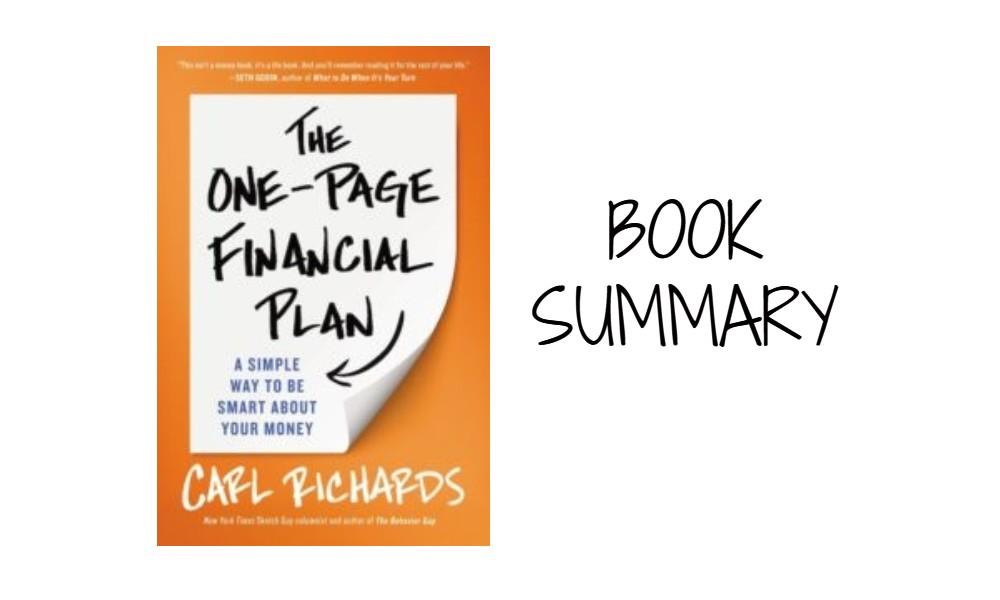
The One-Page Financial Plan is a book by Carl Richards that suggests that the key to successful financial planning is to keep things simple and focused on the most important goals and priorities. The book outlines a framework for creating a financial plan that can be summarized on a single page, including setting financial goals, determining a budget, and creating an investment plan.
According to Richards, the key to successful financial planning is to focus on the big picture and avoid getting bogged down in the details. He suggests that individuals should start by identifying their most important financial goals and then work backward to determine the steps they need to take to achieve those goals. This can help individuals stay focused and avoid getting sidetracked by minor details or short-term fluctuations.
Richards also emphasizes the importance of creating a budget and tracking spending in order to ensure that financial resources are being used effectively and efficiently. He suggests that individuals should focus on maximizing the value they receive from their spending, rather than simply trying to cut expenses as much as possible.
Overall, The One-Page Financial Plan is designed to help individuals create a simple and effective financial plan that can help them achieve their financial goals and build a secure financial future.
15 Take Aways From The One-Page Financial Plan by Carl Richards
It is common for individuals to have a variety of financial goals, such as saving for retirement, paying off debt, building an emergency fund, and saving for large purchases or special events. However, it can be overwhelming to try to manage all of these goals simultaneously, especially if there are many different numbers and details to track.
One approach to managing multiple financial goals is to focus on the big picture and try to determine how much you actually need to do everything you want to do. This can help you prioritize your goals and allocate your resources in a way that makes the most sense for your situation.
To determine how much you need to do everything you want to do, you may want to start by making a list of all of your financial goals and estimating the cost of each one. You can then consider the time horizon for each goal and determine how much you need to save or invest each month to reach your target.
Once you have an overall sense of how much you need to save and invest to achieve your goals, you can then consider your current financial situation and determine how much you can realistically set aside each month. This can help you prioritize your goals and make a plan to achieve them over time.
Overall, it is important to remember that financial planning is a process and it is okay to take things one step at a time. By focusing on the big picture and breaking things down into manageable pieces, you can make progress toward your financial goals and build a secure financial future.

My goal is simple, protect what is important to you. I focus my energy on discovering your exposure to risk and building a comprehensive plan to protect you against those risk.